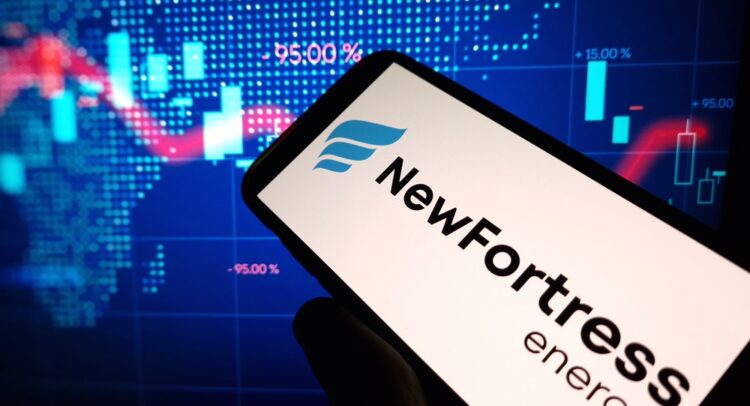A class action lawsuit was filed against New Fortress Energy Inc. (NFE) by Levi & Korsinsky on September 17, 2024. The plaintiffs (shareholders) alleged that they bought NFE stock at artificially inflated prices between February 29, 2024 and August 8, 2024 (Class Period) and are now seeking compensation for their financial losses. Investors who bought New Fortress Energy stock during that period can click here to learn about joining the lawsuit.
Discover the Best Stocks and Maximize Your Portfolio:
- See what stocks are receiving strong buy ratings from top-rated analysts.
- Filter, analyze, and streamline your search for investment opportunities with TipRanks’ Stock Screener.
New Fortress Energy is a clean energy company focused on liquified natural gas (LNG) solutions. The company builds, finances, and operates LNG facilities, power plants, and logistics solutions globally. NFE claims about its Fast LNG projects in Mexico are at the heart of this complaint.
NFE’s Misleading Claims
According to the lawsuit, New Fortress Energy and three of its senior officers (Individual Defendants) repeatedly made false and misleading public statements throughout the Class Period. Particularly, they are accused of omitting truthful information about New Fortress’ Fast LNG projects in Mexico, including the FLNG 1 project, from SEC filings and related material.
For instance, during the Class Period, the CEO stated that 2023 was a record year for the company in terms of all metrics. In the second half of 2023, NFE’s results were completely driven by downstream operating activities, and no profit was made from Cargo Sales. The CEO added that NFE installed its first Fast LNG facility, with the first LNG expected in March 2024 and the first cargo in April. Although the project was delayed, the CEO stated that the company was at the very tail-end stage of the project and it would still be the world’s fastest LNG installation.
Furthermore, on May 8, 2024, the CEO mentioned that NFE had completed the construction of the first FLNG unit and the commissioning of the asset was underway. The first LNG was expected later in May, and the first full cargo in June.
Moreover, in an SEC filing the same day, NFE noted that its initial Fast LNG units were constructed in Texas and that its first Fast LNG unit had been deployed offshore to Mexico. The company stated that it expects to deploy more units in the next two years.
However, subsequent events (discussed below) revealed that New Fortress Energy allegedly misled investors about the pace of building the Fast LNG projects and the expected growth in business performance.
Plaintiffs’ Arguments
The plaintiffs maintain that the Defendants deceived investors by lying and withholding critical information about the company’s business and prospects during the Class Period. Importantly, the Defendants are accused of misleading investors about the potential growth prospects of the Fast LNG projects.
The information became clear on August 9, when NFE announced its Q2 FY24 results. The company reported weaker-than-expected adjusted EBITDA (earnings before interest, tax, depreciation, and amortization) and cut the guidance for the second half of Fiscal 2024.
NFE attributed the revised weak guidance to the delays in commissioning the company’s FLNG 1 project into service. Notably, the company’s operating margin was burdened with an additional $150 million per quarter owing to the delay. Following the news, NFE shares plunged 23.6%.
To conclude, New Fortress Energy allegedly made unrealistic claims about the future prospects of its Fast LNG projects, especially the FLNG 1 project in Mexico. This led to overstated expectations for Fiscal 2024, which were eventually slashed. Year-to-date, NFE stock has plunged 74.2%, causing massive damages to shareholder returns.
Interestingly, NFE is due to release its Q3 FY24 results today, before the market opens. The Street expects NFE to report diluted earnings per share of $0.04 on revenue of $479.69 million. Investors will look forward to any updates on the FLNG 1 project and whether or not the company revises its full-year guidance again.










